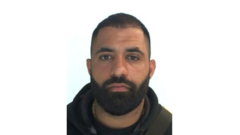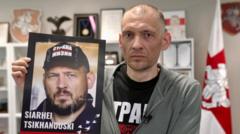As Turkey witnesses escalating protests against the arrest of opposition mayor Ekrem Imamoglu, the government’s crackdown on journalists, marked by the detention of photojournalist Yasin Akgul, raises serious concerns about the future of democracy and press freedom in the country.
Arrests of Journalists amidst Protests Raise Alarm Over Turkey's Democratic Future

Arrests of Journalists amidst Protests Raise Alarm Over Turkey's Democratic Future
The recent crackdown on journalists during widespread protests in Turkey highlights the concerning erosion of democracy and press freedom under President Erdogan's regime.
On the morning of March 23, Yasin Akgul, an accomplished photojournalist for AFP, experienced an alarming turn of events when the police arrived at his Istanbul residence while his children were still asleep. Just hours prior, he had returned from covering large-scale anti-government protests sparked by the arrest of the city’s opposition mayor, Ekrem Imamoglu, a prominent rival to Turkey’s long-time leader, Recep Tayyip Erdogan.
The police presented Akgul with an arrest order without providing any precise details, leaving him profoundly confused and afraid. "I was shocked," he recounted. "I had seen plenty of violence at protests, but having the police in my home was terrifying." Akgul, 35, has spent over a decade documenting conflicts and crises from Syria to Iraq, yet being taken from his family in such a manner was unprecedented.
Akgul was among seven journalists arrested in dawn raids aimed at quelling coverage of the opposition protests that erupted following Imamoglu's controversial detention over corruption allegations, which many view as politically motivated. The authorities had attempted to prohibit such gatherings but were met with public defiance. Akgul now faces charges related to participating in "illegal rallies and marches," a strategy that he believes is designed to deter journalists from documenting the largest unrest in Turkey in over ten years.
His striking images of the protests, including a notable shot of a whirling dervish being pepper-sprayed by riot police, gained international attention. Akgul observed, "This serves as a warning to all journalists... they want to intimidate us into silence." The chilling message sent by these arrests resonates deeply across the journalistic community in Turkey, contributing to a growing atmosphere of fear and self-censorship.
Sitting on the couch in his home, accompanied by his wife Hazal and their children, Akgul expressed concern that he and other seasoned journalists were deliberately targeted to strip the frontline of experienced eyes. In recent weeks, the Turkish government's crackdown has led to over 2,000 detainees, including many young and politically active individuals from the "Generation Erdogan."
The erosion of democratic rights in Turkey is increasingly pronounced, with rights organizations documenting a systematic clampdown on dissent. President Erdogan denotes the protests as "street terrorism" and disparages the opposition for inciting violence, asserting that dissent will diminish. Meanwhile, individuals like lawyer Ece Guner, who advocates for Imamoglu’s legal team, underscore their commitment to preserving democracy and legal integrity despite pervasive intimidation.
Following Akgul’s release from prison, other journalists faced similar fates, notably BBC’s Mark Lowen, who was deported under claims of being a public threat. Activists warn that the extensive control of mainstream media serves to suppress public awareness of protests against the incumbent regime, with significant demonstrations receiving minimal coverage.
Despite ongoing threats, the opposition remains resolute, planning further protests demanding changes to the political framework while calling for early presidential elections. Observers note that sustained dissent may provoke more arrest, yet Akgul remains committed to documenting the unfolding narrative, asserting, "Someone needs to tell this story, and I believe that is my responsibility."





















